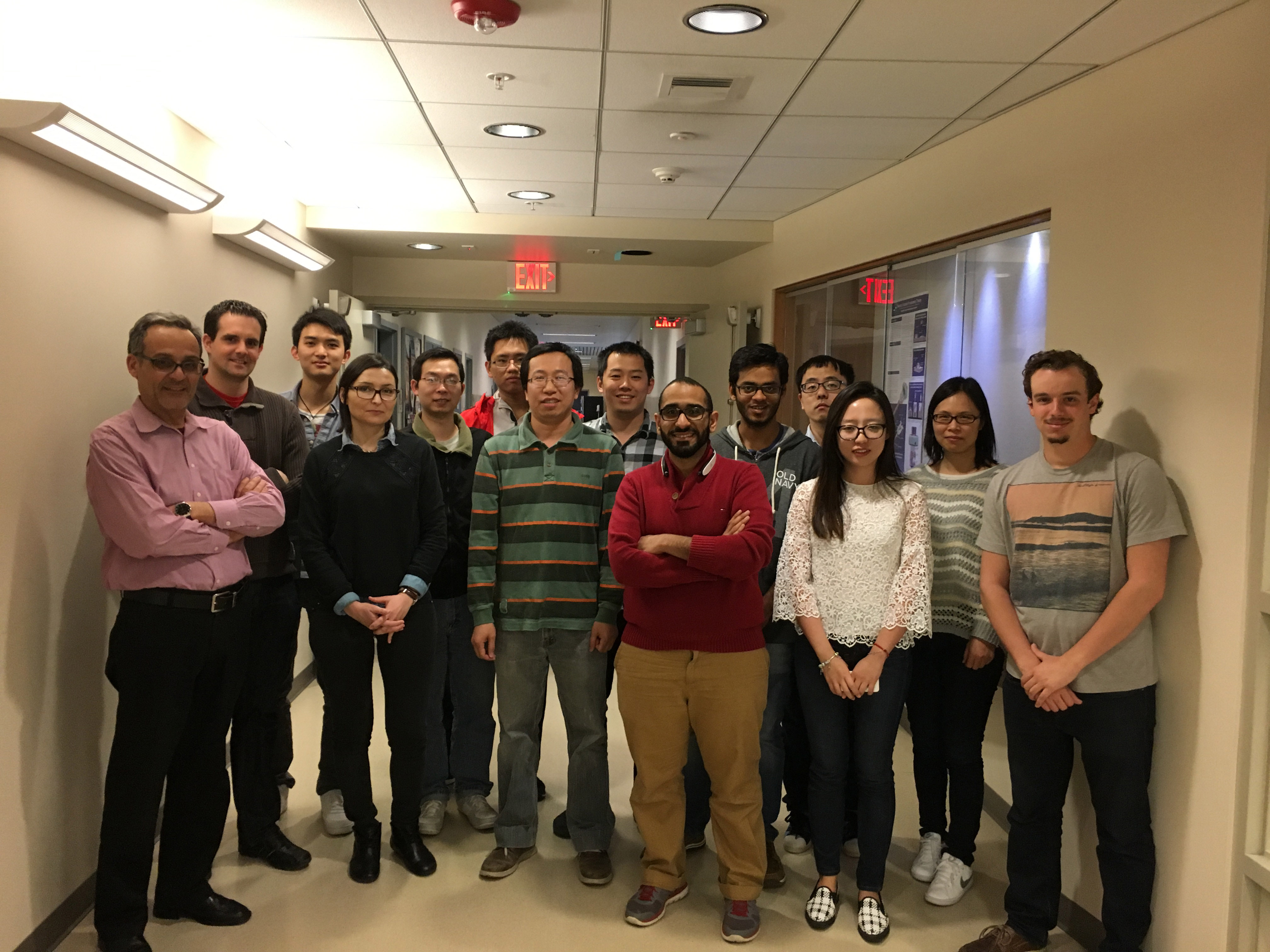Giannelis Group
(Left to Right) Emmanuel Giannelis, Jeremy Odent, Rui Yang, Vasiliki Kosma, Genggeng Qi, Xiao Liu, Baoquan Xie, Wenyang Pan, Turki Baroud, Ajay Dhawale, Linyuan Zhu, Mian Pan, Liling Fu, and Thomas McCune.

Giannelis Group
(Left to Right) Emmanuel Giannelis, Jeremy Odent, Rui Yang, Vasiliki Kosma, Genggeng Qi, Xiao Liu, Baoquan Xie, Wenyang Pan, Turki Baroud, Ajay Dhawale, Linyuan Zhu, Mian Pan, Liling Fu, and Thomas McCune.
Emmanuel. P. Giannelis:
176 Kimball Hall Ithaca, NY 14853
Phone: (607)-255-9680
Please contact Lorie Walker at lbw9@cornell.edu for scheduling meetings.
Efforts to manipulate and control materials at the nanoscale have taken center stage in research activities all over the world. These efforts are motivated, in part, by the realization that nanoscale materials often exhibit properties that are dramatically different from their microscale counterparts. In that respect polymer nanocomposites synthesized by adding nanoparticles such as nanoclays into the polymer matrix have attracted considerable attention in recent years. The goal is to develop lightweight composites with potentially superior mechanical, rheological, electrical, thermal and biomedical properties by taking advantage of the high surface area available in the nanoparticles and the accompanied synergistic effects with the polymer matrix.
Over the years our group has been active and contributed to these efforts. Specific directions have included:
Chemical synthesis and processing of nanocomposites with controlled structure and interface properties.
Characterization of interface structure and dynamics,
Delineation of molecular and structural features that contribute to the mechanical and physical properties of the materials.
All previous efforts have focused on fine-tuning the polymer/nanoparticle miscibility in order to achieve full nanoparticle dispersion. More recently we have become interested in manipulating nanoparticles into organized assemblies by exploiting depletion interactions/phase separation of nanoclays and other nanoparticles.
Finally, we are devoting a significant part of our recent efforts into the development of “solvent-free” or “dry” nanoparticle fluids. These new hybrid systems consist of inorganic nanoparticle cores functionalized with a charged corona. Because of their molecular architecture they flow like liquids but possess no volatility. Furthermore, because of their hybrid nature their optical, magnetic, electronic, biological and other properties can be fine-tuned to meet potential applications.